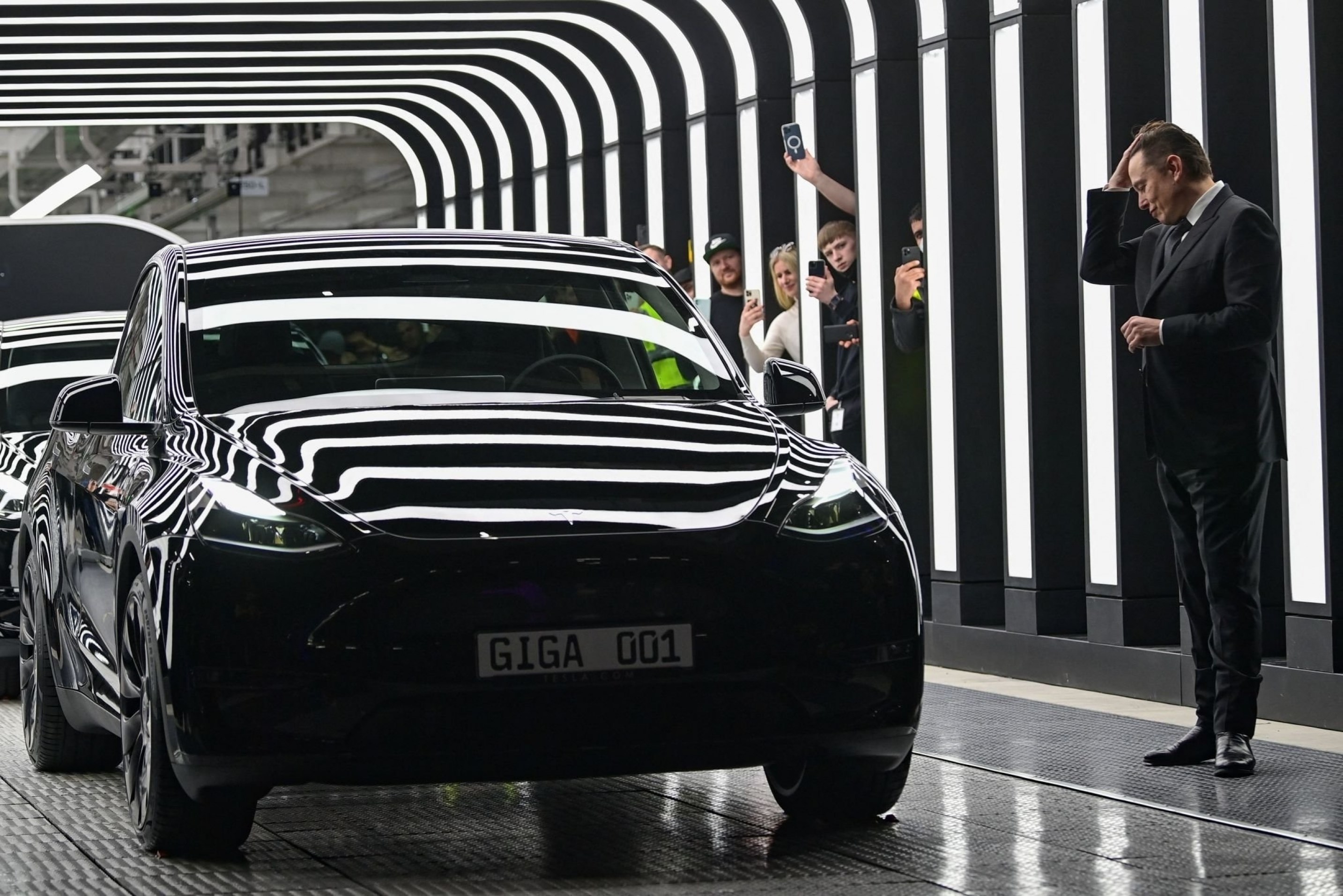Tesla to face trial over Autopilot death in California, Florida
Tesla will face the first two trials over its Autopilot driver assistant feature that led to two fatalities, which will determine the future of self-driving technology.
-

Tesla CEO Elon Musk attends the opening of a production site for Tesla in Berlin, Germany, on March 22, 2022. (AFP)
Tesla Inc. is gearing up for its inaugural courtroom defense against allegations that its Autopilot driver assistance feature was responsible for the deaths of two individuals.
The upcoming trials, scheduled for September and October in California and Florida respectively, are poised to attract close attention from both the automotive sector and safety regulators, as they underscore concerns regarding the safety of autonomous driving technology.
In the California trial, the plaintiffs contend that Autopilot failed to avert a fatal crash of their Tesla Model 3 in 2019, causing the vehicle to veer off a highway and collide with a palm tree, resulting in the driver's death and serious injury to two passengers.
In the Florida case, the plaintiffs assert that Tesla's Autopilot technology was unable to prevent their Tesla Model 3 from driving beneath an 18-wheeler truck's trailer, resulting in the driver's death.
Tesla has refuted liability in both instances, asserting that the drivers were at fault for neglecting their duty to remain attentive to the road. The company emphasized that Autopilot is not synonymous with full self-driving capability and has maintained that drivers must be perpetually prepared to regain control.
Given the complexity of the trials, it is anticipated that they will be protracted affairs. Plaintiffs will attempt to demonstrate that Tesla was cognizant of Autopilot's limitations yet failed to adequately caution drivers about the associated risks. Conversely, Tesla will argue that the drivers exhibited negligence and that Autopilot was not culpable for the accidents.
The trials' outcome carries substantial ramifications for the trajectory of autonomous technology. A ruling against Tesla could potentially tarnish the company's reputation, complicating the progress of other automakers working on self-driving vehicles.
The proceedings are also poised to draw attention to driver monitoring concerns. Although various autonomous systems mandate drivers to maintain hands-on control and be prepared to intervene, evidence suggests some drivers may disregard these stipulations.
The fallout from the Tesla trials could offer clarity concerning the shared responsibilities of drivers and automakers in the realm of autonomous technology. It might also prompt alterations in the design and marketing of self-driving cars.
The stakes are undeniably high for Tesla as these trials unfold. A substantial legal setback could erode the company's standing and hinder the advancement and marketing of self-driving automobiles. On the other hand, a favorable verdict could reinforce Tesla's position as a frontrunner in the self-driving car sector.
Read more: Tesla directors return $735m to settle claims they were overpaid

 3 Min Read
3 Min Read








